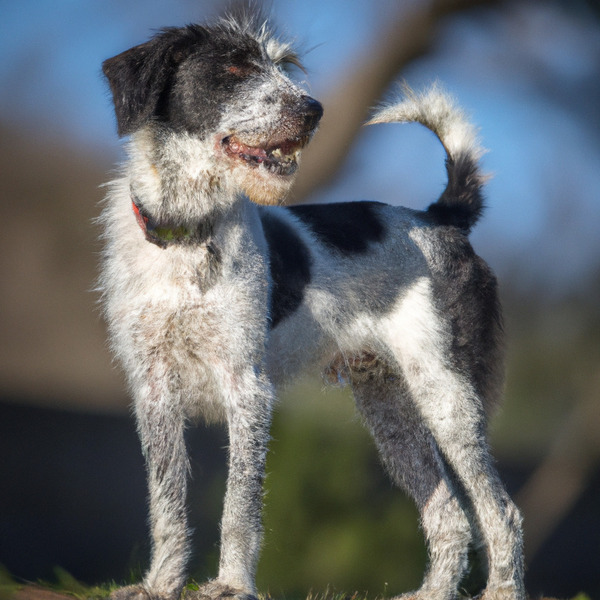Japanese Terrier vs. Peke-A-Chon: Breed Differences and Similarities
Hypoallergenic
Are Japanese Terriers or Peke-A-Chons hypoallergenic, or neither?
Unfortunately, neither Japanese Terrier nor Peke-A-Chon are hypoallergenic, which may not make them the best choice for dog lovers who suffer from pet allergies.
Temperament
What are the personalities of Japanese Terrier and Peke-A-Chon dogs?
Active
Cheerful
Swift
Affectionate
Lively
Vigilant
Playful
Stubborn
Sensitive
Intelligent
Affectionate
Gentle
Aggressive
Good-natured
Cheerful
Opinionated
Shedding Level
Do Japanese Terriers shed more than Peke-A-Chons, or which breed sheds more, Japanese Terriers or Peke-A-Chons?
Japanese Terrier or Peke-A-Chon dogs are not heavy shedders, but they will lose a significant amount of hair each year. To decrease the amount of shedding, you can regularly brush your Japanese Terrier or Peke-A-Chon. This will remove loose hair and keep their coat growing in the same direction.
Watchdog Ability
Which dog breed makes a better watchdog, the Japanese Terrier or Peke-A-Chon?
Japanese Terrier and Peke-A-Chon are very good watchdogs. They are a vocal breed and are wary of outsiders, so if someone approaches your home or aims to intrude, these breeds are going to make sure everyone knows about it.
Origin
What is the origin of Japanese Terrier and Peke-A-Chon dog breeds?
Japan
United States
Ancestry
What are the origins of Japanese Terrier and Peke-A-Chon breeds?
Smooth Fox Terrier, German Pinscher, Kobe Terrier
Bichon Frise, Pekingese
Breed recognition
Which kennel clubs recognize/register Japanese Terrier and Peke-A-Chon?
ACA = American Canine Association Inc.
DRA = Dog Registry of America, Inc.
ACHC = American Canine Hybrid Club
DBR = Designer Breed Registry
DDKC = Designer Dogs Kennel Club
DRA = Dog Registry of America, Inc.
IDCR = International Designer Canine Registry®
Date of Birth
When were Japanese Terrier and Peke-A-Chon breeds first developed?
1600s
Unknown
Eye Color Possibilites
What are the eye colors of Japanese Terrier and Peke-A-Chon dogs?
Brown
Brown
Nose Color Possibilites
What are the natural nose colors of Japanese Terrier and Peke-A-Chon?
Black
Black
Coat Color Possibilites
What are the natural colors of the coat for Japanese Terrier and Peke-A-Chon breeds?
White
Black
Pied
Black
Cream
White
Sable
Fawn
Coat Length
What is the typical coat length for Japanese Terrier and Peke-A-Chon breeds?
Japanese Terriers have coats that can be either short or medium in length.
Peke-A-Chons are known for their coat length.
Coat Density
What is the density of the coat of Japanese Terrier and Peke-A-Chon?
Coat Texture
What is the hair texture of Japanese Terrier and Peke-A-Chon?
Straight
Wavy
Litter Size
What is the usual litter size for Japanese Terrier and Peke-A-Chon?
A Japanese Terrier can have a litter of 12-15 puppies on average. However, it's worth noting that the size of the litters can vary greatly. Factors that can influence litter size include the health of the mother, breeding history, and genetics.
A Peke-A-Chon can have a litter of 2-5 puppies on average. However, it's worth noting that the size of the litters can vary greatly. Factors that can influence litter size include the health of the mother, breeding history, and genetics.
Adaptability
Japanese Terriers are known for their adaptability and can adjust well to different environments and lifestyle changes.
Peke-A-Chons are highly adaptable and versatile, making them excellent companions for families and individuals of all lifestyles.
Health Issues
Between Japanese Terrier and Peke-A-Chon, which breed is more prone to health problems?
The Japanese Terrier and Peke-A-Chon breeds are commonly healthy with low vet costs, regular check-ups may not be as necessary but it's important to keep an eye on their health and have them checked by a veterinarian when needed.
Major Concerns
What are the major health concerns for Japanese Terrier and Peke-A-Chon breeds?
Usually A Very Healthy Breed
Patellar Luxation
Entropion
Hip Dysplasia
Skin Fold Dermatitis
Dental Disease
Legg-Calve-Perthes Disease
Brachycephalic Syndrome
Exposure Keratopathy Syndrome
Minor Concerns
What minor health issues should be kept in mind when owning Japanese Terrier and Peke-A-Chon?
Ear Infections
Patellar Luxation
Eye Problems
KCS
Cataract
Urolithiasis
Hydrocephalus
Eye Disease
Atopic Dermatitis
Mitral Valve Disease
Patent Ductus Arteriosus
Hemophilia
Occasional Tests
What occasional tests are recommended for Japanese Terrier and Peke-A-Chon breeds?
X-Rays
Eye Examination
Yearly Eye Exam
Yearly Physical Examination
Eye
Blood
Heart
X-Rays
Dental Examination
Physical Examination
Allergy Tests
Respiratory Tests
Energy
How do the energy levels of Japanese Terriers and Peke-A-Chons compare?
Japanese Terriers thrive on an active lifestyle due to their high-energy nature.
Peke-A-Chons are suitable for those with a balanced lifestyle as they have an average energy level.
Social Needs
Japanese Terrier vs Peke-A-Chon social needs comparison
Japanese Terrier and Peke-A-Chon have above average social needs compared to other breeds. They thrive in environments where they have a lot of interaction with humans and other dogs.
Exercise Needed
Japanese Terrier vs Peke-A-Chon exercise need comparison.
Japanese Terriers need high physical activity and are ideal for active individuals, but not suitable for sedentary lifestyles or small apartments.
Peke-A-Chons need only a small amount of physical activity, ideal for busy or elderly people or those with limited space.
Sleeping Need
Which of the two sleeps the most/least: Japanese Terrier or Peke-A-Chon?
Japanese Terriers are active and require sufficient sleep to stay healthy.
Peke-A-Chons are known for their relaxed and calm nature and enjoy long periods of sleep.
Tendency to Bark
Do Japanese Terriers or Peke-A-Chons bark more/less frequently?
Japanese Terrier and Peke-A-Chon are vocal breeds, with a tendency to bark and howl frequently. They may not be the best fit for those seeking a quiet companion. Their barks can vary and can indicate different emotions and needs.
Mouthiness
Mouthiness Comparison: Japanese Terrier vs Peke-A-Chon?
Roaming urge
Japanese Terrier vs Labrador: Running away tendency?
Prey Drive
Japanese Terrier or Peke-A-Chon - which breed has a higher level of prey drive?
Past times
What are some enjoyable activities and ways to keep Japanese Terrier and Peke-A-Chon entertained?
Run playin
Snuggles, And much more, Play keep away, Nap time, Fetch, Walks, Walk, Nap, High Five, Eating Snacks
Activity Level
Which breed has higher energy, Japanese Terriers or Peke-A-Chons?
Japanese Terriers are high-energy dogs. They need mental as well as physical exercise. These dogs require a lot of your involvement and without it they can, and will, become problematic dogs.
Peke-A-Chons are medium-energy dogs and typically enjoy socializing and playing casual or even sustained games of chase with other dogs. They may also have occasional periods of barking or racing around the house.
Tolerance of being left alone
Walks per Week
How many miles should Japanese Terrier or Peke-A-Chon walk each week?
Japanese Terrier and Peke-A-Chon generally need a minimum of 8 miles of walking per week, but it can be increased as long as they are comfortable with it.
Activity per Day
Do Japanese Terriers or Peke-A-Chons require more exercise?
In general most Japanese Terriers usually need at least 30 minutes of exercise daily. This can be spread across the day and include all sorts of high-energy activities, like walking, running and playing.
In general most Peke-A-Chons usually need at least 25 minutes of exercise daily. This can be spread across the day and include all sorts of high-energy activities, like walking, running and playing.
Grooming
Which breed is easier to maintain in terms of grooming, Japanese Terriers or Peke-A-Chons?
The Japanese Terrier is a low-maintenance breed that doesn't require much grooming.
Peke-A-Chons have high grooming needs, requiring regular trims and professional grooming assistance to keep their coat healthy.
Brushing Frequency
What is the recommended brushing frequency for Japanese Terrier and Peke-A-Chon dogs?
Japanese Terrier should be brushed at least once a week. Of course you can give them more frequent brushes if you find that they are still shedding a lot
Ideally, Peke-A-Chon should be brushed at least 2 or 3 times a week (preferably daily) improve shedding.
Brushing Tools
What brushing tools are used for Japanese Terriers and Peke-A-Chons?
Slicker Brush
Nail Clipper
Pin Brush
Comb
Scissors
Nail Clipper
Cups
How much food should be given to Japanese Terrier or Peke-A-Chon in cups?
Japanese Terrier and Peke-A-Chon share the same recommended daily food intake of 1 cups, although the appropriate quantity may vary depending on the quality and nutritional content of their food.
Daily Cost
Which breed has a higher daily cost, Japanese Terrier or Peke-A-Chon?
Japanese Terrier and Peke-A-Chon have a similar average daily cost of around $1.10 - $1.40.
Monthly Cost
Which breed has a higher monthly cost, Japanese Terrier or Peke-A-Chon?
When it comes to monthly expenses, both Japanese Terrier and Peke-A-Chon have a similar average cost, ranging from $28 - $42. This results in an average yearly cost of around $336 - $504.
Intelligence
Comparing Intelligence: Japanese Terriers vs Peke-A-Chons
Japanese Terrier is a very intelligent and trainable breed.
Peke-A-Chon has below average obedience intelligence, but they excel in understanding human emotions.
Sensitivity Level
How do Japanese Terrier and Peke-A-Chon compare in sensitivity?
This breed is sensitive to its environment and best suited for patient and understanding families with a consistent routine.
Peke-A-Chons have average emotions and adapt well to different situations.
Affection Dependance
Which is the more affectionate dog breed: Japanese Terrier vs Peke-A-Chon?
Apartment Friendly
Which breed is more apartment-friendly: Japanese Terrier or Peke-A-Chon?
Japanese Terriers can do well in apartments with enough exercise and time outside, but a small yard would be ideal.
Peke-A-Chons make excellent apartment dogs, being fairly active indoors and not requiring a yard.
Child Friendly
Do Japanese Terriers or Peke-A-Chons have a friendlier temperament towards children?
Japanese Terriers are good with kids if socialized and trained from a young age.
Peke-A-Chons have an average level of friendliness towards children.
Senior-friendly
Which dog is more suitable as a pet for the elderly - Japanese Terrier or Peke-A-Chon?
Cat Friendly
Do Japanese Terrier or Peke-A-Chon breeds have a better compatibility with cats?
Japanese Terriers are average in their friendliness toward cats and tend to do well with them, especially if raised together.
Peke-A-Chons are very friendly with cats and make great companions for them.
Dog Friendly
Which breed is more sociable with other dogs: Japanese Terrier or Peke-A-Chon?
Japanese Terriers and Peke-A-Chons are friendly, active and loyal companions. They generally love to be around other dogs, making them a good family pet for some.
Pet friendly
How do Japanese Terrier or Peke-A-Chon dogs interact with other pets?
Stranger Friendly
Which breed is more friendly with strangers: Japanese Terrier or Peke-A-Chon?
Japanese Terrier and Peke-A-Chon are friendly dogs and typically won't bark at strangers. However, if you wish to change this behavior, training them is easy thanks to their intelligence, making it pretty simple to teach them anything.
Playfulness
Which breed is more playful between Japanese Terrier and Peke-A-Chon?
Japanese Terriers are very playful, so adopting an older one might be a better option for a more relaxed experience.
Peke-A-Chons have an average level of playfulness, enjoying playtime like most dogs but not excessively so.
Trainability
How do the trainability levels of Japanese Terriers and Peke-A-Chons compare?
Japanese Terrier and Peke-A-Chon dogs are known for their ease of training and ability to learn quickly, making them a popular choice for pet owners and trainers alike.
Compare Japanese Terrier with other breeds
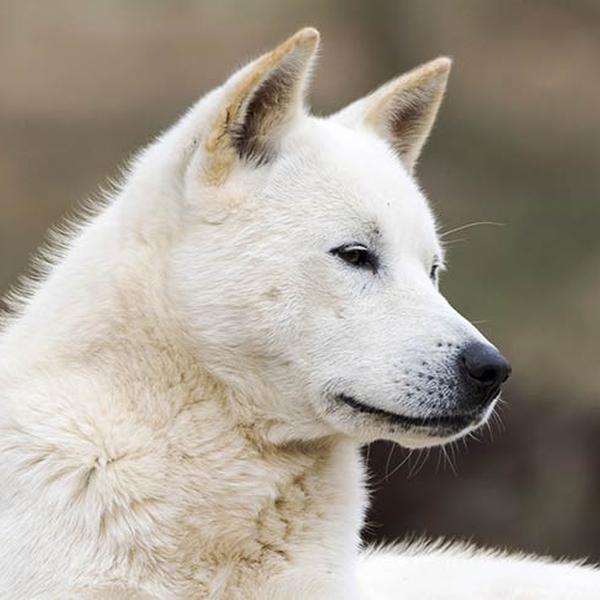
Jindo
Japanese Terrier vs Jindo
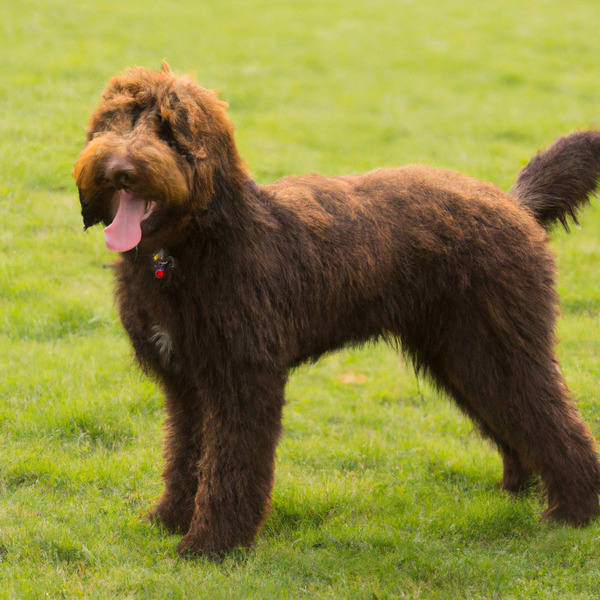
Labradoodle
Japanese Terrier vs Labradoodle
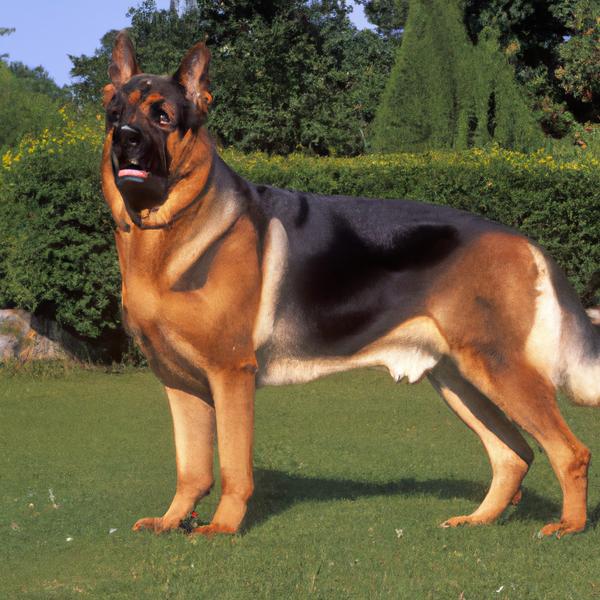
Germanees
Japanese Terrier vs Germanees
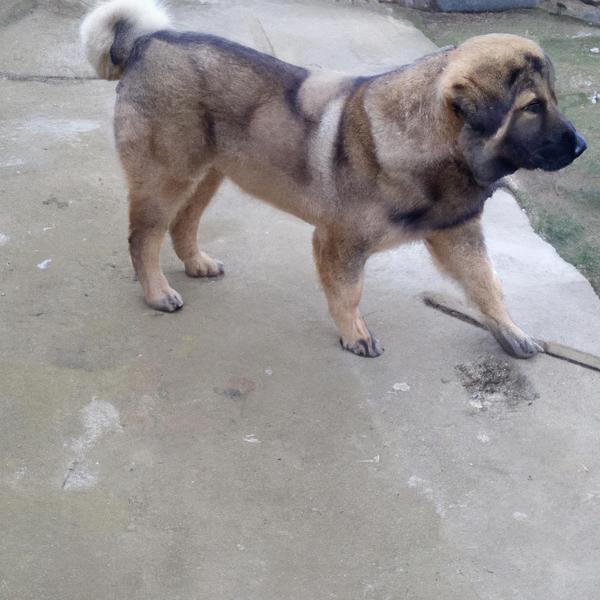
Pughasa
Japanese Terrier vs Pughasa
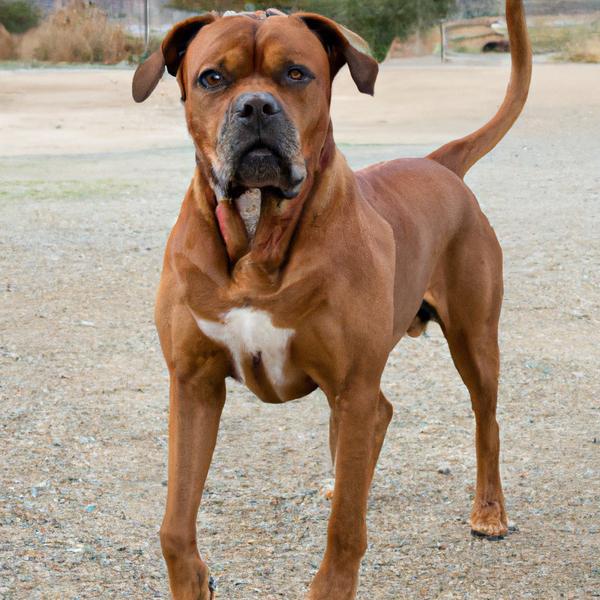
Boxador
Japanese Terrier vs Boxador
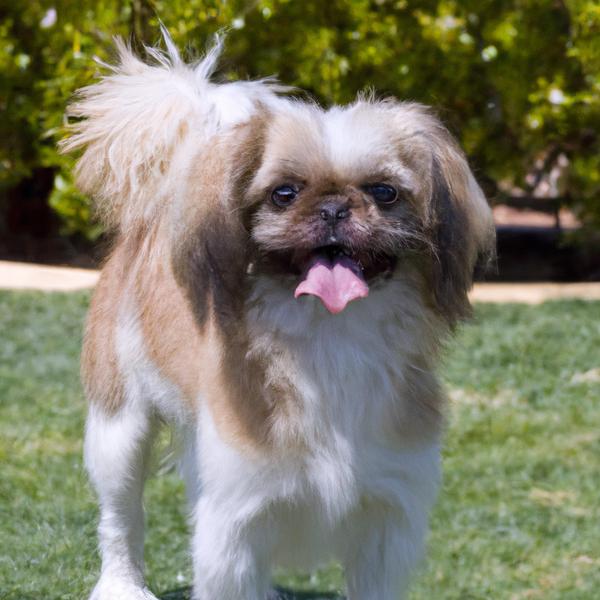
Peke-A-Chon
Japanese Terrier vs Peke-A-Chon
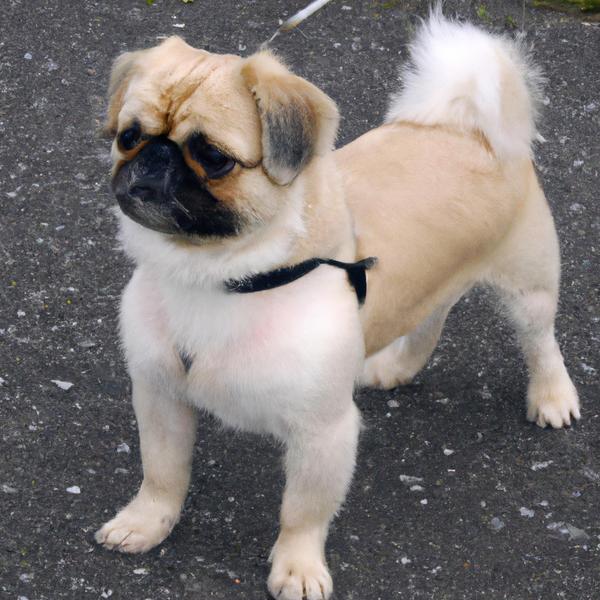
Pug-Coton
Japanese Terrier vs Pug-Coton
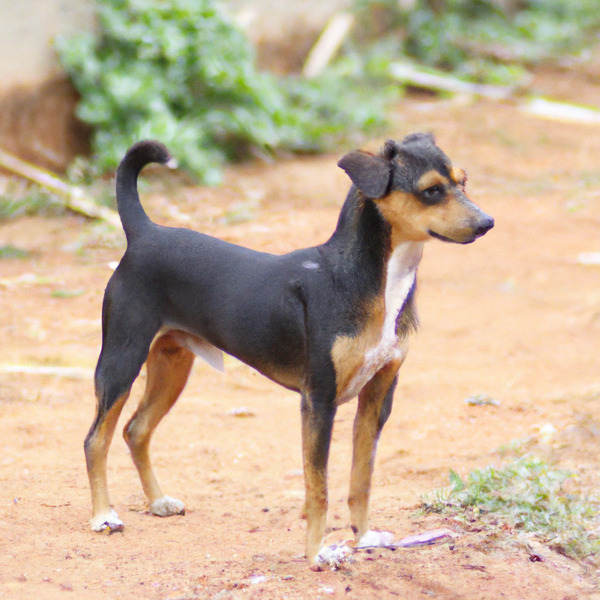
Chippiparai
Japanese Terrier vs Chippiparai
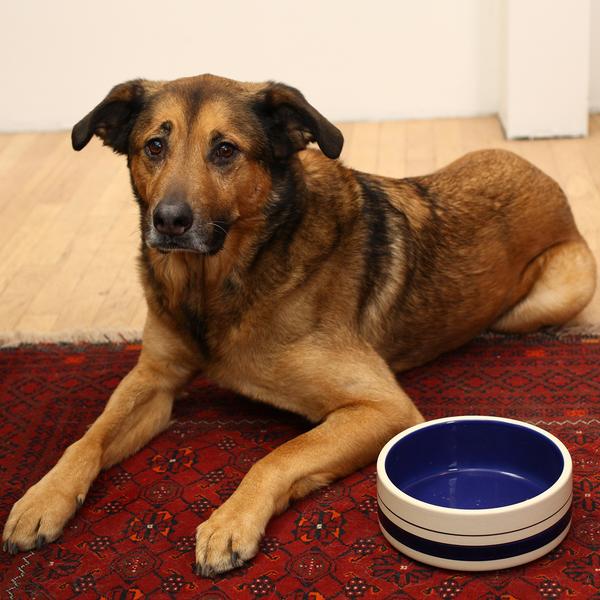
German Sheprador
Japanese Terrier vs German Sheprador
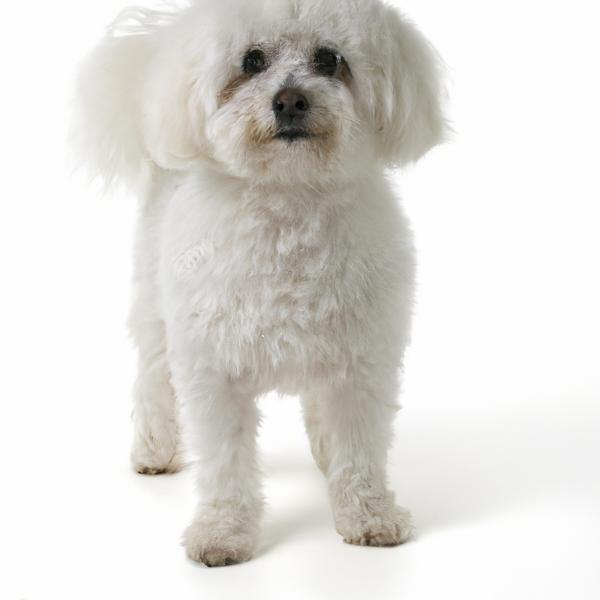
Bichon-A-Ranian
Japanese Terrier vs Bichon-A-Ranian
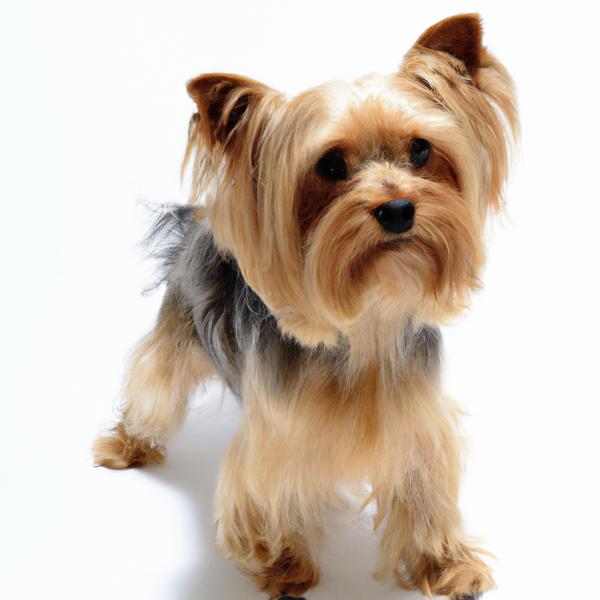
Yorktese
Japanese Terrier vs Yorktese
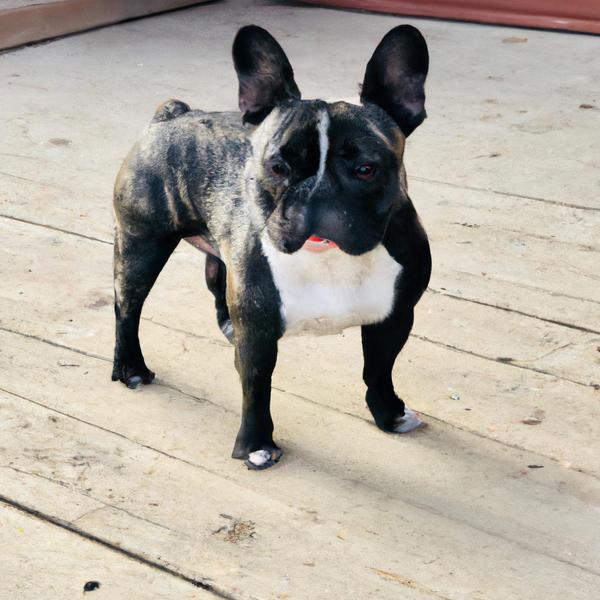
French Bulloxer
Japanese Terrier vs French Bulloxer
